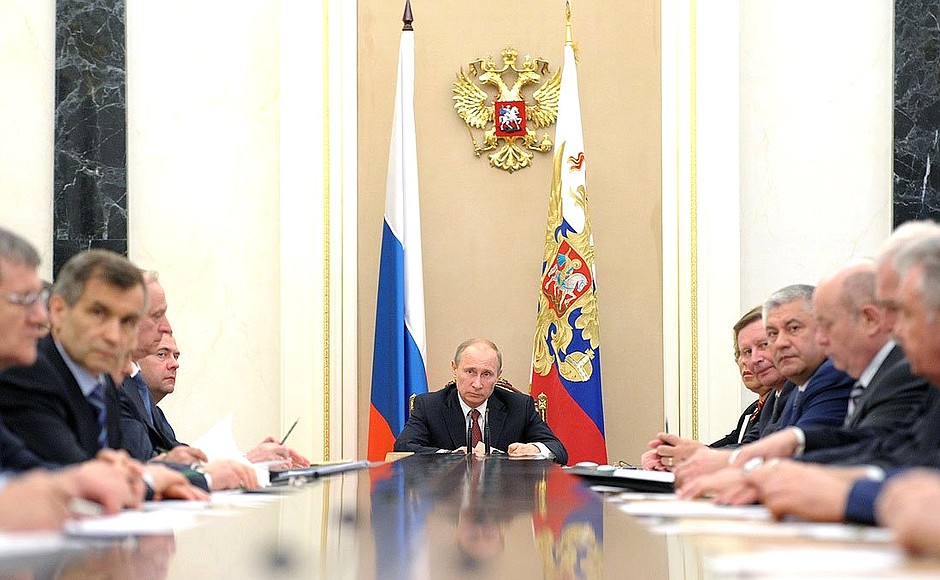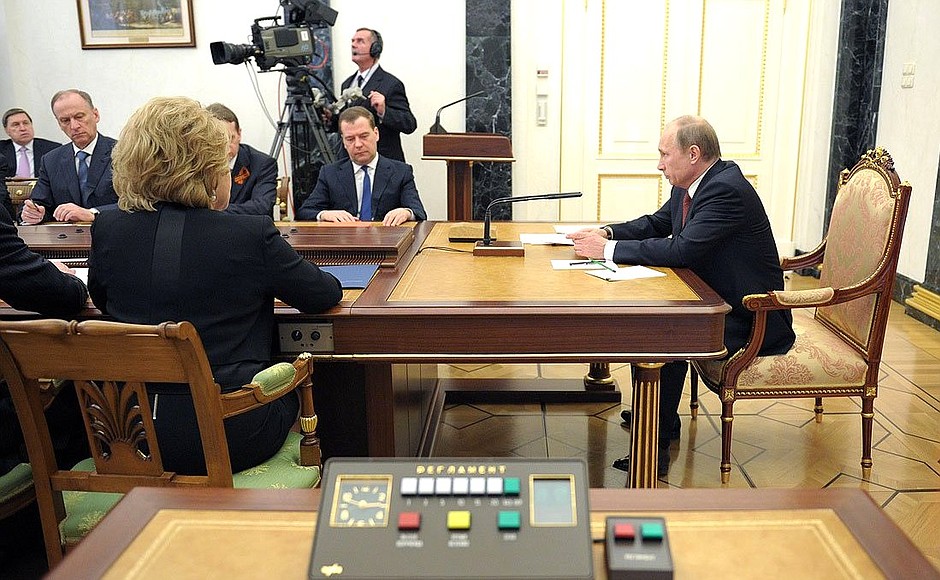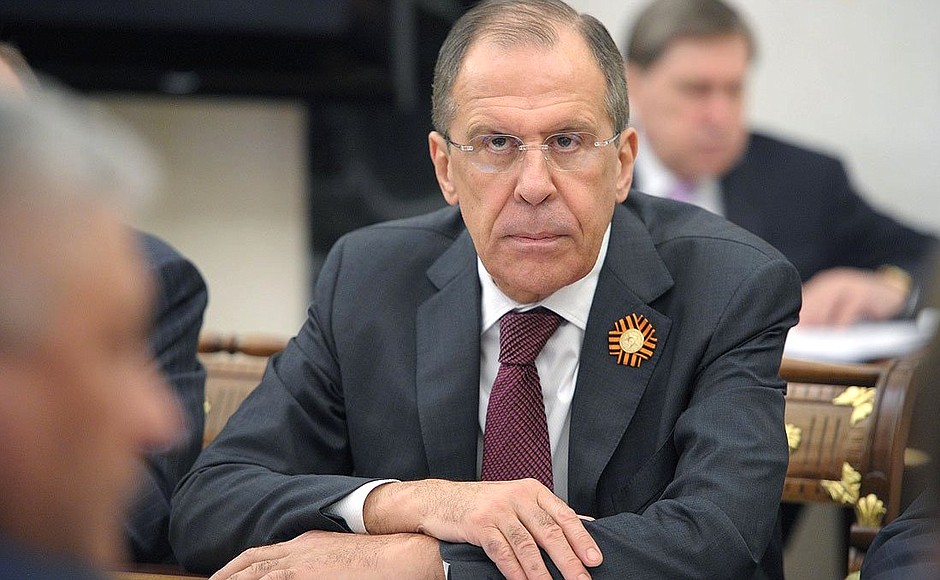* * *
President of Russia Vladimir Putin: Good afternoon, colleagues,
Today, we will look at developments in the situation in Afghanistan. This is a matter of direct concern for our national security. We must ensure stability along Russia’s southern borders in general and in the Eurasian region in particular. Let me say right from the outset that we want to see an independent and sovereign Afghanistan. We want to see peace finally come to Afghanistan, and we want the inter-Afghan dialogue to open the road to national consensus so as to rebuild the state, society and the economy.
Russia is giving Afghanistan needed assistance. We work at the bilateral level and through international efforts. We are helping Afghanistan to train civilian, military and police specialists, and we provide humanitarian assistance. We will continue these policies and keep building friendly relations with Kabul. Russian companies are ready to take part in projects to rebuild Afghanistan’s economy and infrastructure.
Next year, 2014, will not be easy for Afghanistan. The country will hold presidential and provincial elections, and, especially important, the bulk of the foreign military contingent there will be withdrawn. Our partners say that the international security assistance force (ISAF) will be transformed into a consultative and training mission that will not participate directly in military operations. The Afghans themselves will thus shoulder a much greater share of the responsibility for ensuring security and fighting terrorism.
But Afghanistan’s army and police force are still in the process of formation and have a lot of problems. The foreign military contingent, with US servicemen at their core, has not yet managed to achieve a turnaround in the fight against terrorist and radical groups. On the contrary, these groups have become increasingly more active of late. Added to this is the substantial increase in the amount of drugs being produced in Afghanistan and the formation of stable drug trafficking channels to other countries, including, unfortunately, the Russian Federation. The international forces are doing almost nothing to eradicate drug production in Afghanistan. Russia’s proposals in this area have unfortunately been ignored.
We have every reason to expect that the upcoming period will bring further complications in the situation. International terrorist and radical groups make no secret of their plans to export instability and will probably attempt to shift their subversive activities to neighbouring states’ soil. This kind of turn of events has serious dangers for Russia too, including an increase in drug trafficking, trans-border crime, uncontrolled flows of refugees and migrants, and fundamentalism.
For these reasons we are to have a clear action strategy that takes into consideration various possible development scenarios. The objective is to be able to reliably protect Russia’s interests no matter what turn circumstances take.
First, we should reinforce the security system in the strategic southern direction, including the military component. We are to use the full arsenal of preventive measures, and also the potential offered by the CSTO [Collective Security Treaty Organisation] and the SCO [Shanghai Cooperation Organisation]. We have to beef up protection of our state borders, tighten our migration control system, speed up work to equip the CSTO Collective Rapid Reaction Force with modern arms and equipment, and make our work to suppress drug trafficking channels far more effective. I ask you to draw up concrete proposals in all of these areas in rapid time.
Second, solidly established sovereignty and stable economic and social development are the guarantees of stability in the region. We are ready to provide our neighbours and partners with all necessary assistance and strengthen our multifaceted partnership and cooperation both at the bilateral and international levels. This includes carrying out joint economic projects, military technical aid, building up cooperation in the humanitarian sphere, including training personnel and specialists, and developing the common information, education, and cultural space that historically took shape in this region and which always rested on the foundation of the Russian language.
I ask you to address separately the question of Russia’s participation in implementing and financing promising international, infrastructure, transport and energy projects. We welcome the desire of a number of the countries in the region to join in the Customs Union and the Common Economic Space. It is my belief that close integration is the way to achieve economic and social wellbeing in the region and mitigate migration and unemployment problems by creating jobs in these countries themselves and developing trade and industrial cooperation. Furthermore, participation in these kinds of close integration processes is a guarantee against outside attempts to destabilise the situation in the region.
<…>


